Try learning a new alphabet yourself
1 Replies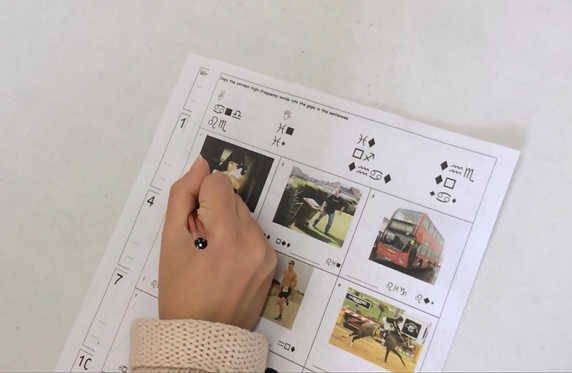
I have a quick workshop activity which gives adults a small taste of what it’s like for children beginning to learn to use a new alphabet.
I’ve decided to make it available to my gentle blog-readers to try out with colleagues, at workshops etc., to help make the point that learning new, abstract symbols is very difficult.
You can download the worksheets for this activity here. The pictures are free-to-use ones from the internet, thanks so much to the generous photographers.
The activity takes about five minutes. There are four tasks:
Task 1
 Filling gaps in sentences by listening to them being read aloud and copying the relevant high-frequency words. Five-year-olds are often asked to memorise the 12 “golden” words used (a, an, be, I, in, is, it, of, that, the, to, was) as one of their first literacy tasks when starting school. Typically adults find they can do this task quickly and without having to think very hard. (more…)
Filling gaps in sentences by listening to them being read aloud and copying the relevant high-frequency words. Five-year-olds are often asked to memorise the 12 “golden” words used (a, an, be, I, in, is, it, of, that, the, to, was) as one of their first literacy tasks when starting school. Typically adults find they can do this task quickly and without having to think very hard. (more…)
Multi-cueing: teaching the habits of poor readers
27 Replies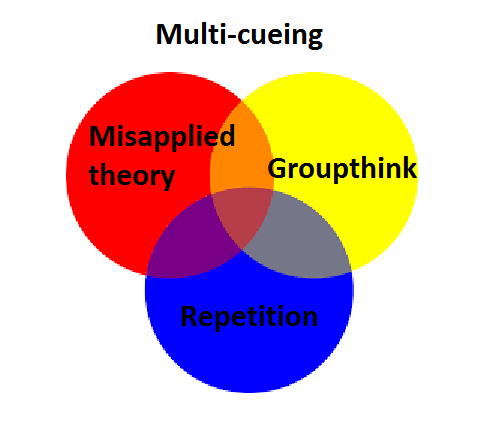
I’m mentioned in The Age newspaper today because as usual I’ve been talking to anyone who will listen about the need for more and better phonemic awareness and phonics teaching for beginning and struggling readers and spellers.
I was a bit sad that the article started off saying that “the ‘reading wars’ have been reignited”, as I’m not interested in war with anyone. I just want teachers to be given the skills and resources they need to teach all but a tiny minority of children to read and spell, confidently and well, on their first attempt. But I guess in the media it has to bleed to lead.
It was lovely that the article discussed the successful use of an explicit, synthetic phonics program with the Preps at Westgarth P.S., one of my local schools. Nothing is so powerful as a good example.
Levelled books for guided reading
11 Replies
The books young children are typically given at school are called “Levelled Books”, which are used in class for “guided reading” or “shared reading”, where a teacher and a group of children read a book together, and discuss it. They’re also used as home readers.
Teachers typically encourage children to use a range of different strategies while reading these books, including guessing words from picture cues, first letters and context (e.g. “what word would make sense there?”), plus sounding words out, though often only as a last resort (perhaps thanks to the lasting influence of Dame Marie Clay, author of Reading Recovery and the Observation Survey still widely used in schools). (more…)
Sorry, all kids deserve the gold standard
7 Replies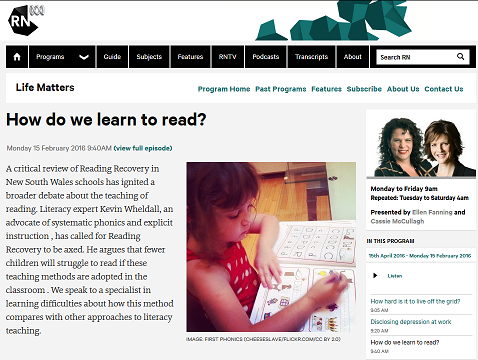
The excellent Lorraine Hammond, President of Learning Difficulties Australia, was on Radio National’s Life Matters program this morning, with the unenviable task of explaining how children learn to read in ten minutes.
You can listen to what she said here.
The program was a follow-up to last week’s much longer discussion about the research showing that the widely-used literacy intervention Reading Recovery is not effective.
Many people contacted the show afterwards to defend teaching literacy using a bit of everything – a bit of rote-memorising “sight words”, a few alphabet lessons, a bit of guessing etc. This is what currently happens in most schools.
Lorraine pointed out that this still leaves us with many children who can’t sound out words, and thus struggle in school and fall further and further behind. One upper primary school child she met had had 10,000 hours of instruction, and was still looking at the first letter and guessing words. Unbelievable. (more…)
Seven things to consider before you buy into phonics programs
2 Replies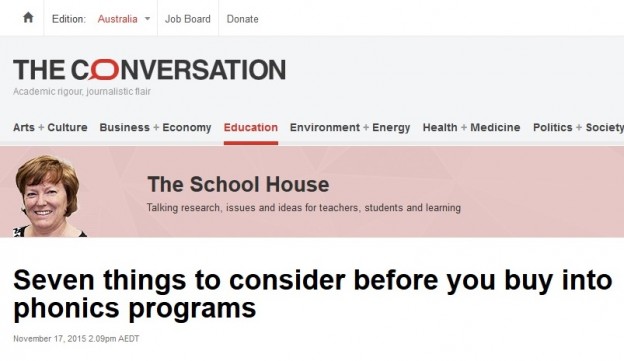
I’ve just written a comment in response to today’s article in The Conversation called “Seven things to consider before you buy into phonics programs” by Senior Lecturer in Language, Literacy and TESL at the University of Canberra, Misty Adoniou.
Her Seven Things are, in distilled form:
- That “English is not a phonetic language”, so spending money and time teaching phonics is of questionable value,
- That sounds are free and people who sell phonics teaching materials are con artists,
- That older students only have comprehension problems, not decoding problems,
- That politicians are not educators or educational researchers, and have no business pushing educational reform,
- That many phonics programs are rubbish,
- That many activities that people call “phonics” are rubbish,
- That everyone learns literacy differently, and phonics programs are only relevant to learners with “particular learning needs”.
I only agree with points 5 and 6 (one of the reasons I set up this blog was to help people avoid the rubbish) so I wrote a fairly long comment in reply. (more…)
Reading Recovery Revisited
16 Replies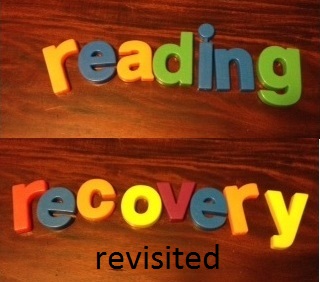
Two years ago I wrote a blog post about Reading Recovery, after two children in their fourth year of schooling were referred to me with the reading and spelling skills of the average six-year-old.
Both had done Reading Recovery, but it obviously hadn’t worked.
When I read about what Reading Recovery entails, it was obvious why not.
Only five minutes of each half-hour daily Reading Recovery session involves work on sounds (phonemes) and spellings (graphemes), the areas in which these students (and most young strugglers) needed most help, just to be able to get words off and onto the page.
The rest of the session involves activities that are unlikely to be of much benefit to such learners. Some of the strategies encouraged, like guessing from pictures, context or first letters, are counter-productive.
I kept thinking about these students this week while listening to US literacy expert Louisa Moats talking about the need to improve literacy instruction in schools, and make sure children like these don’t fall through the cracks.
Dr Louisa Moats: We need to be outraged
24 Replies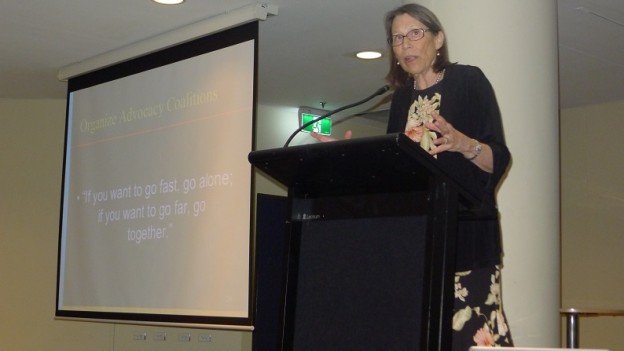
Learning Difficulties Australia has just marked its 50th anniversary with a national speaking tour by US literacy expert Dr Louisa Moats.
Dr Moats is the author of many influential papers and articles about literacy, and has been a key advocate for better language education for teachers in the US.
I've written a couple of previous blog posts about some of her work, here and here, but you can just google her name to find out lots more.
I spent all of Saturday and this morning in workshops by Dr Moats, so my head is kind of exploding with good information and ideas, in particular about how to align literacy-teaching with the scientific evidence about what works best.
I tend to get very focussed on sounds and spellings because they're the area of greatest need for most strugglers, and because of the lack of accurate information and systematic teaching about them. Teachers and the curriculum are focussed on letters, but letters are not the basic units for decoding, sounds (phonemes) and their spellings (graphemes) are.
However, Dr Moats' workshops reminded me about the broader context of what constitutes a good literacy program. It's good to get a bit of an "eyes up" now and then.
Dr Moats was very frank: Reading is one of the most studied aspects of human psychology, so we know a great deal about how novices learn, how proficient readers read, what' s going on in the brain when we read and what causes reading difficulty.
So, she says, "At a certain point (or a certain age) you begin to wonder: if we know so much about reading, how come there are so many poor readers?"
Her answer is that the science of reading is not well-reflected in classroom practices.



